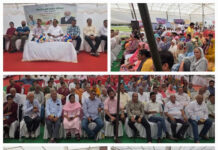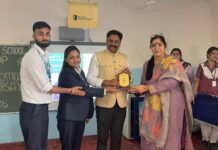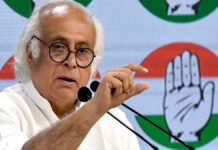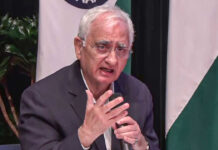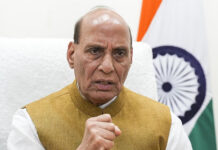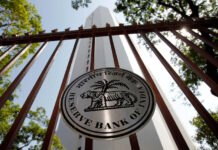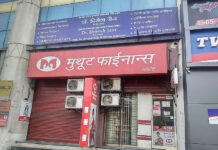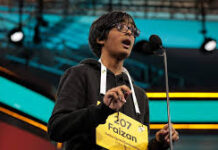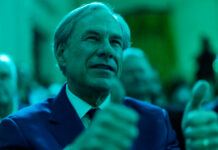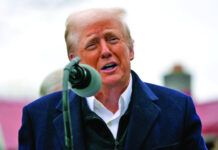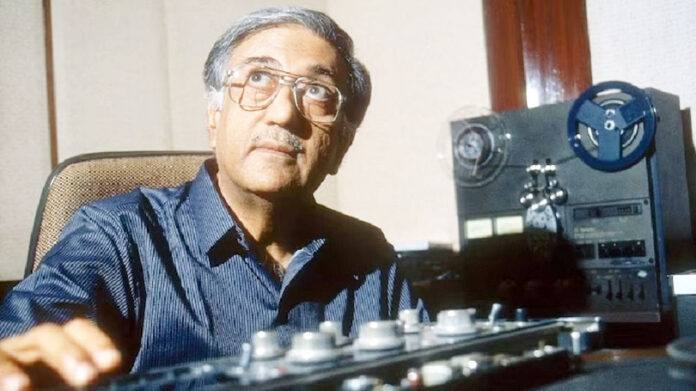DOGRA HERALD BUREAU
MUMBAI, Feb 21
Ameen Sayani, radio’s most recognised voice for millions of Indians who tuned into Binaca Geetmala every week, has died. He was 91.
Sayani suffered a heart attack Tuesday evening and was taken to a hospital in south Mumbai but could not be saved, his son Rajil said.
“He passed away last night of a heart attack at the H N Reliance hospital. He was rushed to the hospital last evening around 6 pm after he complained of chest pain. They tried to revive him but he passed away around 7 pm,” Rajil said.
The last rites will be held on Thursday.
“Namaste behno aur bhaiyo, main aapka dost Ameen Sayani bol raha hoon”. The familiar greeting and the instantly identifiable voice coasted on airwaves into countless homes every Wednesday on Radio Ceylon from 1952 to 1988, still evoking strong nostalgia amongst listeners.
After 1988, Binaca Geetmala moved to All India Radio’s Vividh Bharati where it ruled the charts till 1994.
Sayani, who was born in Mumbai in a multilingual family on December 21, 1932, compered, presented and voiced over 50,000 shows in 42 years.
Condoling Sayani’s death, Prime Minister Narendra Modi said the iconic radio presenter “nurtured a very special bond with his listeners”.
“Shri Ameen Sayani Ji’s golden voice on the airwaves had a charm and warmth that endeared him to people across generations. Through his work, he played an important role in revolutionising Indian broadcasting and nurtured a very special bond with his listeners. Saddened by his passing away. Condolences to his family, admirers and all radio lovers. May his soul rest in peace,” the PM posted on X.
Sayani’s death was also mourned by politicians like TMC leader Derek O’Brien and Congress leader Jairam Ramesh.
“Ameen Sayani left us today to join The Great Broadcaster in The Sky,” O’Brien posted on X.
Ramesh said Sayani’s voice was a part of his childhood, teen and youth years.
“Ameen Sayani, an iconic radio personality, belonged to a distinguished family of nationalists who epitomised the values of an India that seems to be fast vanishing,” Ramesh posted.
Sayani had a creative flair since childhood and started writing for his mother’s fortnightly journal Rehbar when he was just 13, which was when he became a proficient broadcaster in English and started participating in children’s programmes on the English service of All India Radio Bombay.
He later left Bombay to study in Gwalior. When he returned to Bombay post Independence, he auditioned for AIR’s Hindi service but was rejected because of a slight Gujarati accent.
The tryst with fame came a few years later.
In 1952, then information and broadcasting minister B V Keskar banned Hindi songs from AIR.
Around that time, Radio Ceylon, which was founded by the British, started becoming popular for its programmes in English, Tamil and Hindi. Broadcast from Colombo, Radio Ceylon began its journey in 1949.
American businessman Daniel Molina saw an opportunity there and established his company, Radio Advertising Services in Mumbai. He hired Sayani’s elder brother, former AIR broadcaster Hamid Sayani, to run Radio Ceylon’s production arm.
Hamid Sayani and Molina were keen to produce a programme on Hindi songs and the elder Sayani zeroed in on his young brother.
The rest, as they say, is history.
Sayani became a radio presenter in Hindi with Binaca Geetmala, a programme of Hindi film songs sponsored by the toothpaste brand, in December 1952 and never looked back.
The first of its kind show, it ran for 42 years to massive popularity.
Millions in different parts of India would tune in on Wednesday to listen to Sayani in his inimitable voice introducing songs from Hindi cinema.
AIR tried to counter the programmes popularity by introducing Vividh Bharti in 1957 but Sayani’s loyal fanbase remained intact through change in stations and sponsors.

